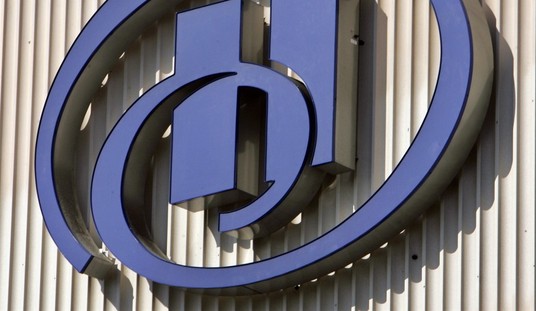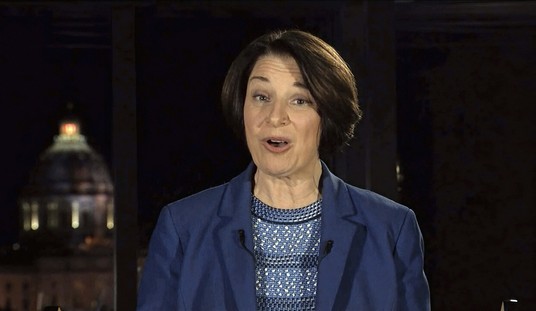Investors Business Daily’s editors quickly read through the actual legislation of the House health-care reform bill looking for hidden time bombs — and they found a doozy. On page 16 of over a thousand pages of text, they discovered a clause that essentially locks people into their current plan, and locks everyone out of any other plan. Well, presumably the public plan will be an exception:
When we first saw the paragraph Tuesday, just after the 1,018-page document was released, we thought we surely must be misreading it. So we sought help from the House Ways and Means Committee.
It turns out we were right: The provision would indeed outlaw individual private coverage. Under the Orwellian header of “Protecting The Choice To Keep Current Coverage,” the “Limitation On New Enrollment” section of the bill clearly states:
“Except as provided in this paragraph, the individual health insurance issuer offering such coverage does not enroll any individual in such coverage if the first effective date of coverage is on or after the first day” of the year the legislation becomes law.
So we can all keep our coverage, just as promised — with, of course, exceptions: Those who currently have private individual coverage won’t be able to change it. Nor will those who leave a company to work for themselves be free to buy individual plans from private carriers.
Surprise! You can, as Obama promised, keep your current coverage — as long as it remains available. However, if your employer stops offering health-care benefits, or if you buy it privately and your insurer cancels your plan, you can’t just pick up another private plan. Enrollments will be closed as of the first day the bill becomes law.
That will have the effect of forcing millions of people into the public plan whether they want it or not. Even worse, if insurers get barred from attracting new customers — which this clause outlaws — then they will eventually see their rolls drained, thanks to the natural flow of the market as employers drop plans and skip the expense of offering medical insurance. It won’t take long at all for insurers to exit the market and leave the field for just the public plan, which will automatically get the customers of each individual insurer as they close up shop.
Does this bill outlaw private insurance? Literally, no, but in practical terms, it makes it an endangered species and creates an American single-payer system by default.
It has to pass first, though, and Blue Dog Democrats say they’ve seen enough:
Centrist Democrats are threatening to oppose their party’s healthcare legislation unless House Speaker Nancy Pelosi (D-Calif.) accepts changes that make the bill more to their liking.
Seven Blue Dogs on the House Energy and Commerce Committee have banded together to draft amendments that they’ll co-sponsor in the committee markup, which starts Thursday. Rep. Mike Ross (D-Ark.), the Blue Dogs’ point man on healthcare, says if those changes aren’t accepted, they’ll vote down the bill.
“We cannot support the current bill,” Ross said. “Last time I checked, it took seven Democrats to stop a bill in Energy and Commerce.” …
Blue Dogs think the bill fails to do enough to reduce healthcare costs, jeopardizes jobs with a fee on employers that don’t provide health insurance, and would base a government-run healthcare plan on a Medicare payment system that already penalizes their rural districts.
Michelle has the names to call this week to encourage them to vote against this bill.
Update: Instapundit gets this feedback from a reader:
Investor’s Business Daily did not continue to read the bill to page 19. “Individual health insurance coverage that is not grandfathered health insurance coverage under subsection (a) may only be offered on or after the first day of Y1 as an Exchange-participating health benefits plan. ”
It does not outlaw individual private coverage – you can still buy the plan on the Exchange where they will compete with the public option, not be replaced by it. The advantage of the Exchange, is that the coverage no longer has one of the problems of individual coverage – skyrocketing premiums should you become ill.
Well, that may address the issue, but price-fixing premiums means insurers can’t cover the costs of the risk they assume. Either the insurers will have to start with higher premiums to cover their costs, or they will go out of business when usage increases and premiums remain fixed. Forcing insurers into price-fixing schemes only adds another step to their extinction.








Join the conversation as a VIP Member